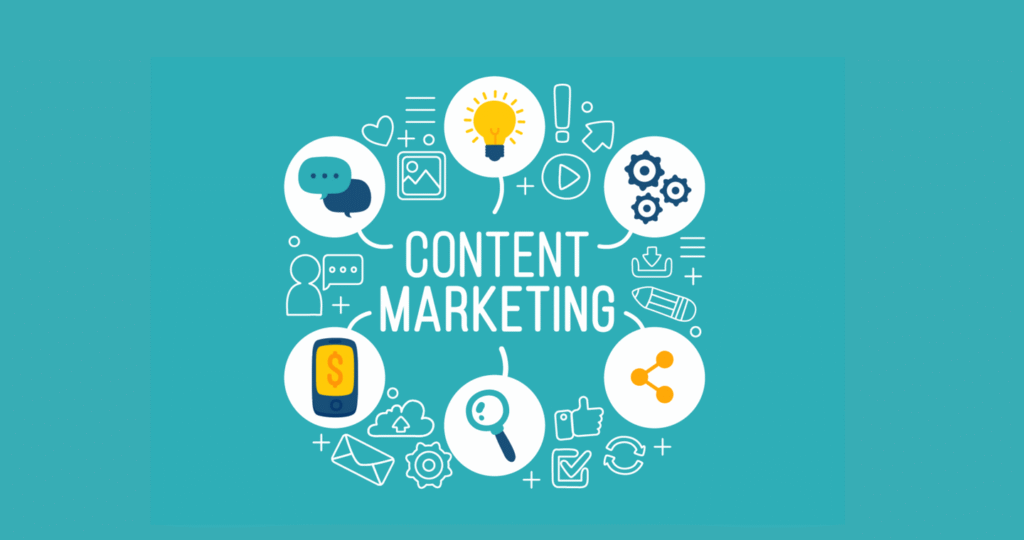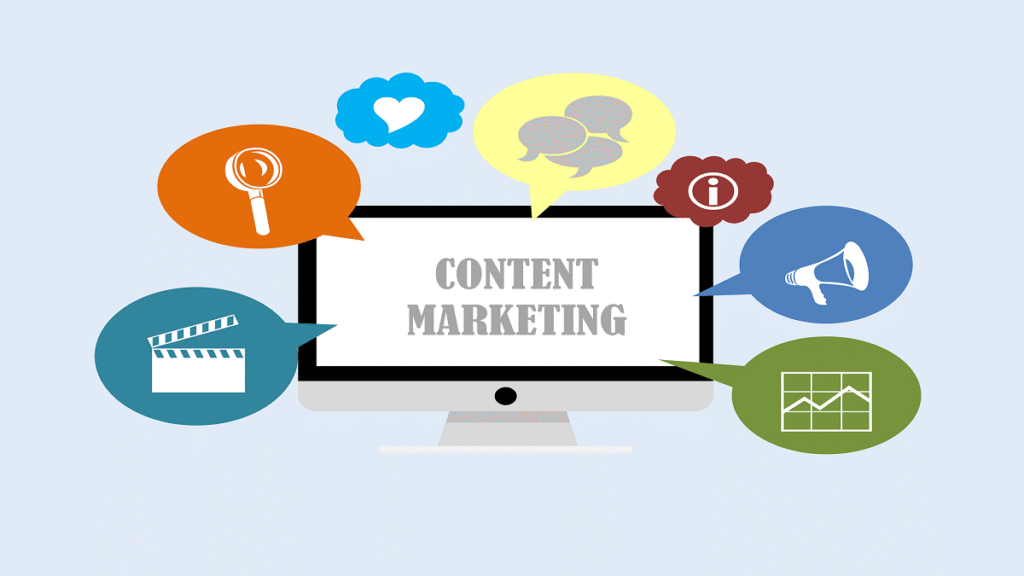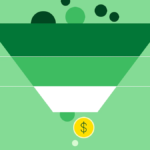Industry surveys report figures around 97% in some samples—for example, many marketers say they include content marketing in their strategy or report success with it. Content marketing is effective for key goals such as increasing conversions, generating leads, improving SEO, raising brand awareness, and building lasting customer loyalty.
Compared to conventional advertising, your content might provide more leads at a lower cost if it is done correctly. There has never been a better moment for companies across all sectors to use the potential of content marketing, especially with emerging technologies like generative AI.
This article explains the main benefits of content marketing, the most effective approaches, and how to use high-quality content to accomplish your most crucial digital marketing objectives, whether you’re new to content marketing or just trying to find ways to increase engagement and improve the return on investment of your content strategy.
Why Marketers Are Getting Inclined To Content Marketing

1. Better ROI
Research indicates content marketing can cost about 62% less than outbound/traditional marketing. You save the most money since you post the material on your own platforms, including your blog, website, and social media accounts.
The primary cost in content marketing is content production. Advances such as generative AI have made content production more economical for many businesses, though strategy and human review remain essential.
Brands are shifting more of their marketing budgets toward content—for some mid-sized companies, content production budgets are now closer to paid-advertising budgets, like Google Ads.
However, there is a significant distinction: your material is available to prospective clients for as long as you like. In contrast to a costly advertising campaign that lasts for a few months at most, you can continuously modify and update it, and it will continue to bring value for months or even years to come.
2. Boost Conversion Rates
Despite not being primarily focused on sales, content marketing may have a significant effect on conversion rates. Some B2B programs, when executed well, have delivered several-fold returns in ROI—though outcomes vary widely by industry and execution. This achievement comes from generating meaningful, relevant stuff that develops trust and presents your business as an authority.
However, quantifying the entire effect of content marketing may be tricky. The sentence is fine after rewording: Unlike short-term campaigns that may yield quick results, content marketing works steadily—building relationships and trust over time.
By providing continuous insights, advice, and stories, organizations keep audiences engaged and build loyalty. This long-term strategy boosts customer lifetime value (CLV), since delighted customers are more likely to make repeat purchases, endorse your business, and stay engaged, giving lasting growth rather than transitory gains.
3. Boosting Your Website Traffic
Anyone concerned about their digital marketing efforts realizes that without a robust content strategy and the important benefits of content marketing, search engine optimization (SEO) becomes significantly tougher. High-quality, relevant content is the cornerstone of organic search success and remains the most effective strategy to build sustained website traffic.
Search engines, notably Google, prefer sites that continuously post relevant, original information that directly meets user searches. By focusing on producing insightful articles, guides, videos, or infographics, you not only improve your rankings on search engine results pages (SERPs) but also establish your brand as an authority in its field.
Over time, excellent content automatically draws backlinks from credible blogs and industry websites, further improving your site’s trustworthiness. A comprehensive content approach guarantees your SEO efforts develop enduring exposure and significant interaction.
4. Generate High-Quality Leads
When compared with outbound or paid advertising, content marketing has, in some studies, generated about three times the number of leads for a similar investment. As an inbound approach, it focuses on recruiting customers who are already seeking information, goods, or services linked to your organization.
This implies that the audience that finds your blogs, videos, podcasts, or social media postings is significantly more likely to have a genuine interest in what you provide. By continuously posting quality and relevant material, you organically filter out less qualified leads while attracting prospective consumers who are ready to interact or buy.
This method not only minimizes wasted marketing expenditure but also establishes deeper connections with prospects, helping you nurture them through the sales funnel and get better long-term conversion outcomes.
5. Boosts Sales
Increasing website traffic—including paid traffic—does not automatically increase sales unless visitor intent and content relevance are aligned. Visitors without purchase intent may not convert, so raw traffic growth alone doesn’t guarantee revenue. Content marketing, however, overcomes this gap by operating on both fronts: creating more quality visitors and driving better sales.
The benefits of content marketing tackle every step of the buyer’s journey—from helping prospective consumers discover they have an issue to leading them through research and solution comparisons and eventually supporting them in making a purchase choice.
By continuously giving excellent, well-researched material, content marketing creates trust and credibility with your audience. This connection makes prospects more likely to remain engaged, frequent your site, and eventually become loyal customers, enhancing both traffic quality and revenue.
6. Doesn’t Irritate People
The effectiveness of traditional marketing is declining because no one likes confrontational advertising. When was the last time you ever made a purchase as a result of an advertisement that disrupted your day? Research indicates around 30–40% of internet users employ ad-blockers, with variation by region and device.
Paid advertising can boost visibility quickly, but content marketing often delivers lower cost-per-lead and longer-term value—studies commonly report content as costing roughly 62% less than outbound tactics while generating more leads.
Read More: 9 Content Marketing Courses
7. Increases Brand Awareness
Branded search, or online searches that include a particular brand name, is a unique opportunity that only well-known businesses have. You have very little possibility of getting branded searches, particularly if your brand is relatively new to the market. However, having a wealth of excellent knowledge available online may help level the playing field.
Potential customers are looking for information about solutions similar to yours online, even if they have never heard of your brand before. Research indicates many B2B buyers (often around 90%) visit between 2 and 7 websites during their decision process. Your content helps shoppers connect with your business for the first time when they search for subjects connected to your product.
8. Boost Your Social Media Presence
One of the most essential but frequently neglected important benefits of content marketing is its capacity to expand your social media following. While your main purpose may be to educate, amuse, or enlighten with high-quality content, an inescapable byproduct is that interested readers will want to stay connected with your business.
As consumers find value in your articles, videos, or infographics, they’ll be tempted to follow you on sites like Instagram, LinkedIn, or X to keep up with future updates. Over time, each new blog post or resource you write becomes shareable information that followers may disseminate to their own audiences.
This organic sharing not only grows your reach but also boosts your brand’s legitimacy and exposure, establishing a continual funnel of dedicated followers and future buyers.
9. Create a Brand Personality
Another major feature of content marketing is its potential to develop and exhibit your brand’s personality. A successful brand is more than simply a name, color scheme, or logo—it encompasses a set of values, motives, and a unique character that connects with its audience.
Through smart writing, you can explain what your brand stands for and develop a real relationship with consumers. For example, if your firm sells cosmetics, producing content that praises inclusivity, self-expression, and body acceptance may reinforce your objective and attract like-minded customers.
Blogs, videos, and articles allow you to tell stories, showcase values, and reveal the human side of your products and services. This personality-driven strategy creates the framework for your brand story, making it seem relevant and memorable.
Will Content Marketing Predominate In The Future?
In an era when consumers are swamped with advertising, content marketing is emerging as one of the most successful methods for businesses to engage with their audiences. Rather than depending entirely on conventional advertisements or sponsored promotions, content marketing focuses on giving quality, relevant material that connects with prospective buyers.
This method fosters trust, nurtures connections, and positions firms as thought leaders in their sectors. One of the major benefits of content marketing is its long-term influence. High-quality blogs, videos, podcasts, and social media pieces continue to attract traffic and interaction long after they’re published.
Unlike short-term advertising strategies, well-planned content gives continual rewards, increasing search ranks, gaining backlinks, and establishing a dedicated community around your business. It’s a sustainable method that accumulates over time.
Additionally, today’s customers seek authenticity. They like to engage with businesses that educate, amuse, or inspire rather than merely sell. Content marketing addresses this need by addressing client requirements, solving issues, and stimulating discussions. It operates across numerous platforms—from websites and newsletters to social networks—enabling firms to reach people wherever they are.
AI can increase content efficiency and personalization, but outputs must be guided and reviewed by humans to ensure quality and accuracy. Personalization, data-driven insights, and interactive formats will keep changing how companies tell their stories.
While paid advertising still has its role, the future definitely swings toward techniques that stress value and interaction. Content marketing not only attracts and maintains clients but also establishes genuine connections that survive the test of time. For organizations wanting to succeed in a competitive digital world, investing in content marketing isn’t simply a choice—it’s a forward-looking need.
FAQ
Q: What is content marketing’s primary goal?
A: Content marketing is a strategic marketing method that focuses on producing and disseminating consistent, quality, and relevant material in order to draw in and hold on to a well-defined audience and, eventually, encourage lucrative consumer behavior.
Q: What are the types of content?
A: There are many formats—commonly classified by format (text, audio, video, visuals) or by purpose (educational, entertaining, promotional, etc.). In order to educate, engage, and market to an audience, popular content categories include blog posts, social media posts, infographics, videos, ebooks, white papers, podcasts, and email newsletters.
Q: What aspects of content marketing are there?
A: The four elements of content marketing are informative, entertaining, emotional, and interactive. Brand resonance is used as a mediating variable to examine how content marketing influences consumers’ intentions to make purchases.







